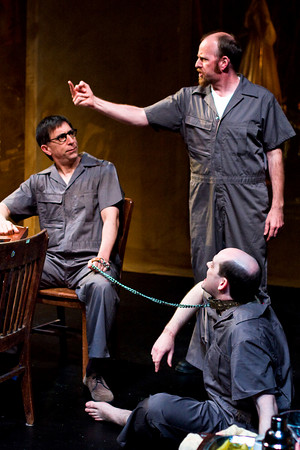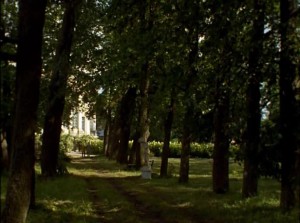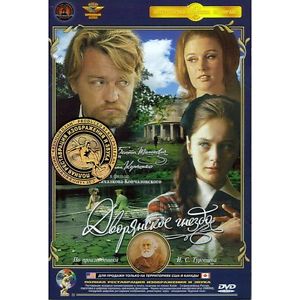Recommended: STRAUSS AT MIDNIGHT
As a fan of the directorless Theater Oobleck dating all the way back to its second show in Chicago (David Isaacson’s riotous Three Who Dared: A Play on the Movies, in June 1988), with particularly fond memories of Jeff Dorchen’s The Slow and Painful Death of Sam Shepard (December 1988) and Ugly’s First World (October 1989) as well as Mickle Maher’s When Will the Rats Come to Chew Through Your Anus? (January 1990), I regret having somehow lost touch with their singular repertory of literary and political shotgun marriages in recent years. A recent visit to Dorchen’s brilliantly excessive Strauss at Midnight at the the Chicago DCA Theater (66 E. Randolph), which runs through July 19, reminded me of how much heat and liberating anger and laughter they can generate.
This play has something to do with Saul Bellow (Isaacson), posthumously still tainted by his former association with Allan Bloom (Troy Martin), and, through Bloom, with Leo Strauss (David Shapiro), condemned to a hell in which he has inhabit the same quarters as Neil Simon’s Odd Couple (Brian Nemtusak and H.B. Ward doing fine, surreal spinoffs of Jack Lemmon and Walter Matthau), not to mention Niccolo Machiavelli (Scott Hermes) and In the Heat of the Night‘s Virgil Tibbs (D’wayne Taylor). Read more



